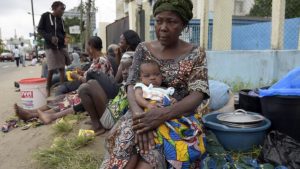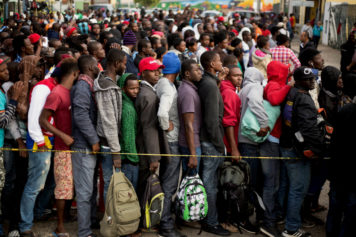
But similar stories are being played out across the African continent, as wealthier countries clamp down on immigration amid security fears.
While Africans are among those swelling the migrant crisis in Europe, many more are fleeing to other parts of Africa, and facing similar struggles.
The International Migration Organization’s Migrant Assistance Specialist for West Africa, Michele Bombassei, says the majority of African migrants don’t leave the continent.
“Compared to the overall scale of the migratory phenomenon in the region, 70% of the migrants in the region remain in the region. Meaning that only 30% actually go out of West and Central Africa.”
But migration within the African continent is becoming less easy.
Even in South Africa, the continent’s most developed economy, many people fled an outbreak of xenophobic attacks this year, made by residents afraid of foreigners taking their jobs.
Amid rising concerns over the spread of Islamist militant groups on the continent and several economies hit by a slump in commodities prices, the IOM’s Michelle Bombassei says some African nations are clamping down on those migration flows.
“Security is becoming more and more an issue. As I said, migration is part of the tradition and the culture of the region and plays a major role in the economy within the region. But we also have to mention that in very specific areas, which are for instance affected by terrorism or by security threats of different kinds, the presence of large, large numbers of migrants, sometimes undocumented, is a concern for many governments, especially with the risk of infiltration of terrorists or armed groups of different kind.”
Cameroon, Niger and Chad have deported thousands of people in the face of attacks within their borders by Nigerian Islamist group Boko Haram.
Read more at www.sbs.com.au


